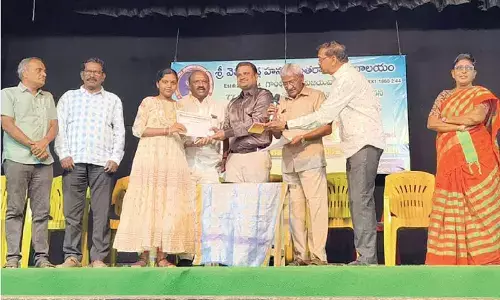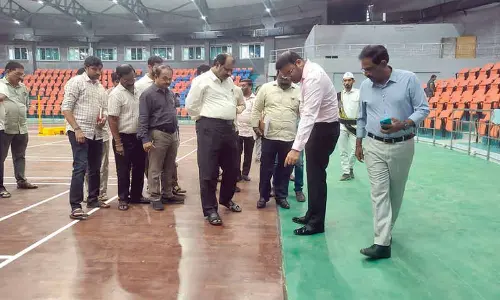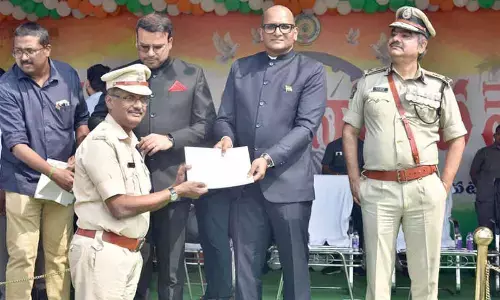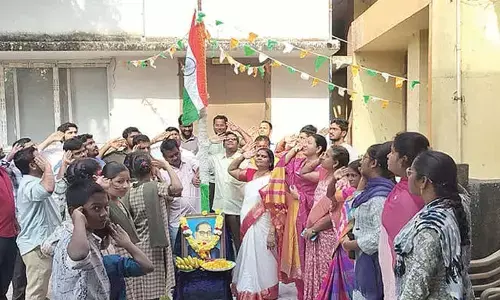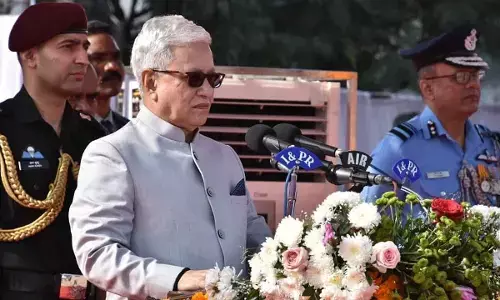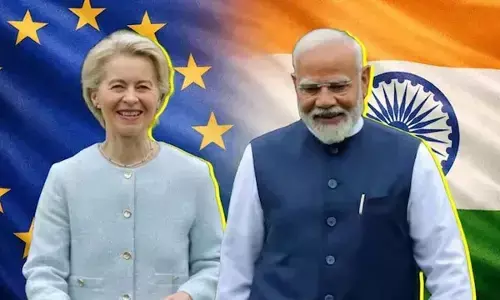MyVoice: Views of our readers - 8 Dec

MyVoice: Views of our readers - 8 Dec
Our woman must be protected
Amid nationwide outrage over increasing sexual crimes against women, we should not overlook some of the basic aspects of brutal rapes and murders of women. One important factor in such crimes is that most of the perpetrators belong to the underprivileged section.
Most of them are uneducated and unemployed. They are insensitive and have no qualms about subjecting hapless victims to brutality. Another factor is that a majority of them are addicted to pornography, drugs and alcohol. Such addictions make them obsessed with sex.
It stimulates them to commit such crimes. Over the years, attitude of people to women have changed. Misogynistic and consumeristic attitude of people have led to downgrading of women. Gender equality must become an essential part of our lives.
Equity in accessing public places and women's autonomy must become integral aspects of our culture. Women must be respected, protected and help should be offered to them whenever needed.
Girl children should be brought up and trained in such a way that they can boldly face any challenges in lives. Harsh punishments must be meted out to the perpetrators. A nationwide movement to protect our women must be launched.
Venu G S, Kollam, Kerala
II
This letter refers to the recent comments on justice by Chief Justice of India, SA Bobde. While he may not be wrong in stating that justice can never be instant, he must also remember that the wait for justice can't be eternal.
The judiciary must never forget the adage 'justice delayed is justice denied.' A number of rapes happen in India every day and a very few are convicted. And even among those convicted, the courts are unable to carry out the punishment.
A case in point is the sensational Nirbhaya incident that shook the conscience of the nation. Seven years on, there is no justice for Nirbhaya, and the case is still pending. The rapists are still alive and are being fed with taxpayers' money.
If such is the course the law takes in a high-profile case, what hope is there for countless daughters of India who are raped every day and whose cases drift away from the media glare? When the law does not do its job, what is wrong if someone takes law into the hands?
Praveen NVS, Sai Nagar, Kurnool, AP
III
The moral, ethical, and legal conundrums related to crime, punishment, justice, and revenge come to the fore again with the extra-judicial killings of the accused in the Disha rape and murder case. All the four deserved the highest punishment, about this there is no second opinion.
What is debatable is the means to achieve the end, which raises more uncomfortable questions than answers. Death or imprisonment for life for heinous crimes is a matter of debate for many centuries in any civilised society. When the entire country erupts in joy at the dramatic and instant killing of the four accused, it reflects directly on the judicial system of the country.
The delays, the leniency, the ineffectiveness, the injustices of the courts themselves has come to a point that a civilised society is rejoicing in a revenge killing. The Chief Justice's platitudes that revenge should not be a part of justice is all very good for sound bites. However, more importantly, the country exhorts him to do something to increase the country's confidence and trust in the effectiveness of the judicial system.
The crime of passion was alcohol driven. Again, it is a dubious moral stance we are taking when alcohol becomes a major source of revenue for the governments. The sense of shame or privacy in consuming alcohol is no longer present and has, in fact, come out in the public domain with serious implications.
There is something wrong with the society and the governments too where alcohol becomes a huge consideration in winning elections or for the sake of targets by Excise Departments.
Personally, I would want each one of them to hang, but I would have held my head in pride at the country if a fast-track court had convicted them as guilty and then proceeded with the punishment.
The present situation is feel-good solution but leaves a huge set of questions for the citizens, the governments, and the judicial systems. The larger picture does not cover anybody with glory.
Dr Pingali Gopal, Excise Colony, Warangal











